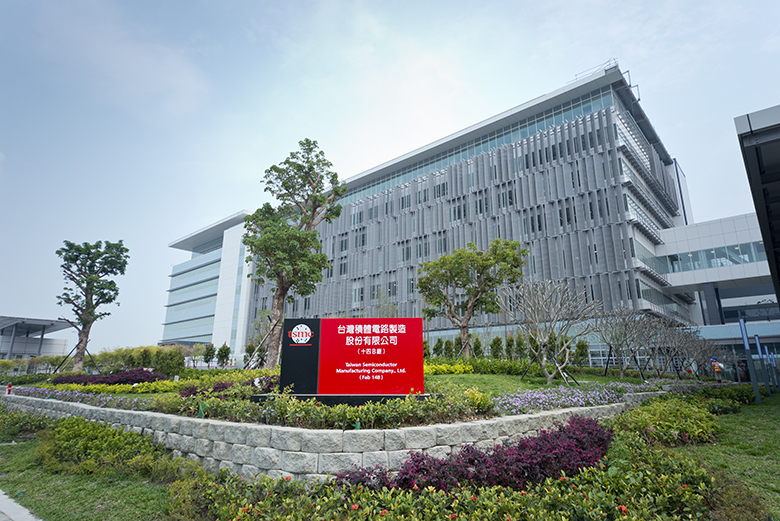
Image credit: TSMC
Reporter | Peng Xin
Under the influence of the epidemic and geopolitics, TSMC, the leader in wafer manufacturing, still delivered good results in the first quarter, but its stock price was under pressure under the downturn in technology stocks, and the market was concerned about its next move.
On June 8, TSMC held an investor meeting to communicate investment and business conditions to investors.
Liu Deyin, chairman of TSMC, said that despite the Russian-Ukrainian conflict and the impact of the epidemic, inflation has eased slightly, but it is still at a high point so far. For the semiconductor high-tech industry, inflation has not yet had an impact, and the impact on demand will still be observed in the long-term.
On April 14, the market research firm IDC lowered its forecast data for the Chinese terminal market. Among them, smartphone shipments are expected to decline by 5.5% year-on-year.
Liu Deyin said that the main demand is declining, mainly in the field of smart phones and consumer electronics, but TSMC has stable demand for automotive and HPC, and because of its leading technology, the production capacity is still full, and some of the automotive demand exceeds expectations.

At present, TSMC is the world’s largest wafer foundry, and it also maintains a leading position in technology. On the most advanced 3-nanometer process, TSMC previously said that it is progressing smoothly, and the production capacity climb will be mainly driven by the market for HPC (high-performance computing) and smartphone chip products.
In addition to the demand side, TSMC also needs to address potential challenges on the supply side. Liu Deyin pointed out that the new crown epidemic has caused chaos in the semiconductor supply chain around the world in the past two years, but TSMC strives to maximize production and shipments and adjust flexibly, and the company goes all out to give customers the greatest support.
Regarding the question of whether TSMC will follow up on chip price increases that investors are concerned about, Wei Zhejia, president of TSMC, said that the pricing strategy is communicated with customers and will not follow the actions of other competitors.
Looking forward to the future, Liu Deyin said that with the acceleration of the digitalization process and TSMC’s technological leadership in the semiconductor field, the company is entering a stage of high structural growth. It is expected that sales revenue will increase by about 30% in 2022, and the consolidated revenue in the second quarter will be about 17.6 billion to $18.2 billion, operating margins range from 56% to 58%, and operating net margins are 45% to 47%.
This also means that TSMC must be prepared in advance in terms of plant expansion, requiring a substantial increase in capital investment. TSMC said that most of the semiconductor manufacturing expansion will continue to be carried out in Taiwan, but it also plans to expand production capacity to the United States and Japan.
TSMC’s previously released first-quarter financial report showed that the company’s revenue was NT$491.08 billion, a year-on-year increase of 35.5%, exceeding the previously expected upper limit; net profit was NT$202.77 billion, a year-on-year increase of 45.1%.
In the financial report, TSMC mentioned that it still plans to maintain its original expansion plan, and that capital expenditure in 2022 will remain between $40 billion and $44 billion. TSMC previously stated that 70%-80% of them will be invested in advanced processes ranging from 2nm to 7nm, about 10% will be used for masks and advanced packaging, and the rest will be invested in special processes.
In addition, the market has repeatedly reported that TSMC plans to build factories in Europe. Liu Deyin said that TSMC continues to evaluate possible factory building plans in various locations. The main consideration for overseas factory building is customer needs, and it has now started in the United States and Japan. There are few European customers to build a factory, and it is still under evaluation, and there is no specific plan.
media coverage
Sohu IT Home TechWeb IT Home Interface Sina Technology
event tracking
- 2022-06-08TSMC expects revenue to increase by nearly 30% this year, and has no plans to build factories in Europe at this stage
- 2022-06-06TSMC ‘s first 2nm factory will start construction in the third quarter of this year
- 2022-04-16It is reported that TSMC may produce 3nm chips for Apple in the second half of 2022
- 2022-02-15TSMC’s U.S. plant construction plan delayed by up to half a year
- 2022-01-18TSMC becomes the biggest winner of chip shortage and will sprint to trillion-dollar market value
This article is reprinted from: https://readhub.cn/topic/8gF4pQUI9HL
This site is for inclusion only, and the copyright belongs to the original author.